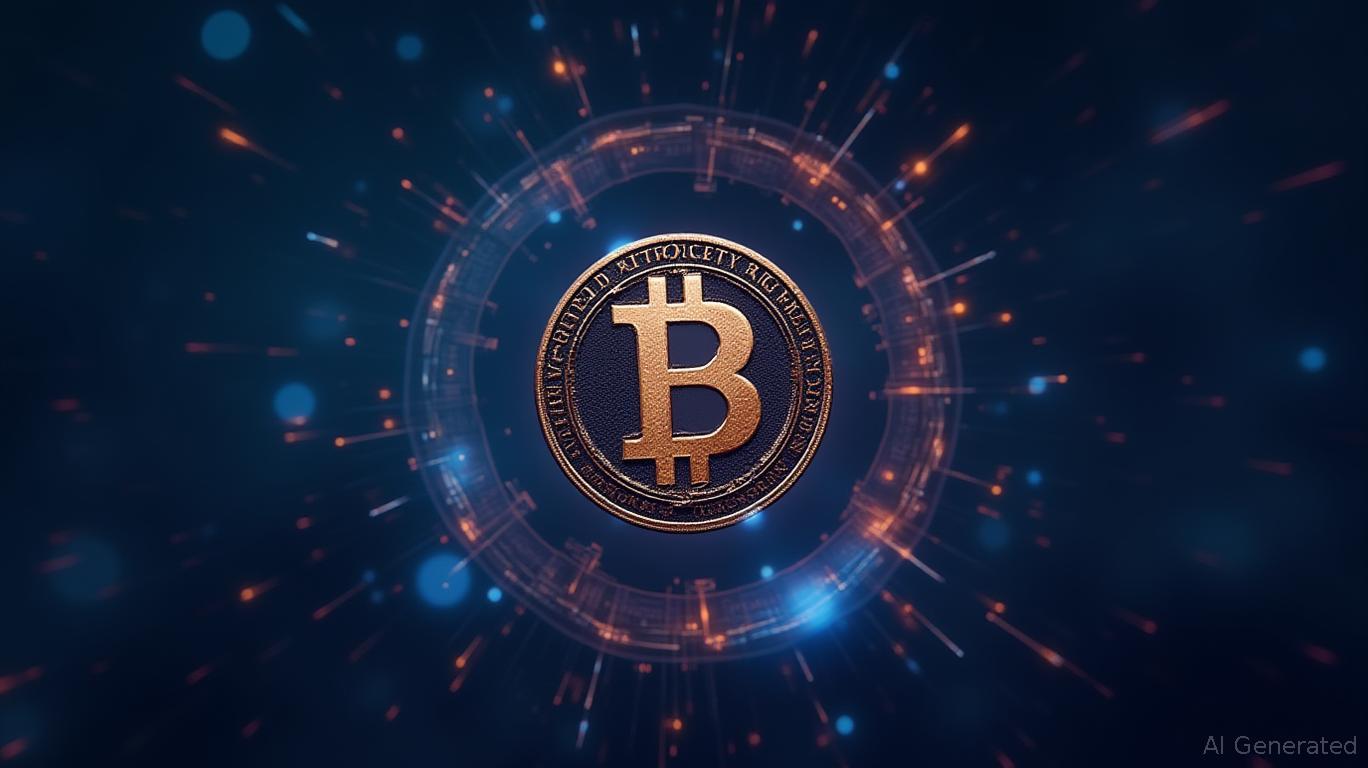BNM Strives to Combine Innovation with Regulation in Advancing Tokenization
- BNM launches 3-year RWA tokenization plan to boost Malaysia's digital finance leadership in Southeast Asia. - Phased roadmap includes 2026 pilots and 2027 trials, focusing on SME finance, Islamic sukuk, and sustainability tools. - Projects must deliver real-world benefits, blockchain viability, and technical feasibility under BNM's framework. - Collaboration with banks and fintechs aims to enhance transparency and attract ethical investments via Sharia-compliant solutions. - Initiative could reshape fina
Bank Negara Malaysia (BNM) has unveiled a three-year program to investigate the tokenization of real-world assets (RWA), aiming to establish Malaysia as a frontrunner in Southeast Asia’s digital finance sector. The central bank revealed a comprehensive

BNM’s strategy is divided into phases, starting with proof-of-concept and pilot projects in 2026, followed by expanded trials in 2027. The central bank highlighted its careful yet progressive approach, focusing on initiatives that can deliver clear economic value and are technically practical. For example, tokenizing invoices could help close Malaysia’s RM101 billion ($21.5 billion) financing gap for small and medium-sized enterprises (SMEs) by turning invoices into digital tokens, which would speed up and lower the cost of accessing credit, as noted in a
Each project will be assessed based on three main criteria: delivering tangible real-world outcomes, confirming that blockchain is the best solution (not just the default), and ensuring technical feasibility within the current infrastructure. BNM made it clear that conventional methods like APIs may still be more suitable for certain problems, reflecting its practical approach, as reported by Coinfomania. This structure is designed to steer clear of speculative ventures and concentrate on projects that support Malaysia’s economic goals, such as increasing supply chain transparency or validating environmental data for green bonds, according to Fintech News.
BNM is inviting participation from banks, fintech companies, and blockchain developers to submit their use-case ideas by March 1, 2026. The Digital Asset Innovation Hub will act as a platform to test these concepts, encouraging innovation while reinforcing Malaysia’s regulatory environment for digital assets. This collaborative strategy is similar to efforts underway in Singapore and Hong Kong, where regulators are also piloting tokenized assets to strengthen financial infrastructure, Fintech News reported.
If the plan succeeds, it could transform Malaysia’s financial sector by making lending, asset management, and trade finance more efficient. For instance, tokenized supply-chain solutions could enhance payment tracking and minimize delays for SMEs, while programmable payment tokens could automate government payouts or escrow services, as Fintech News further explained. The initiative also seeks to advance Malaysia’s leadership in Islamic finance by developing Sharia-compliant blockchain solutions, which could attract international investors interested in ethical finance, according to the TradingView report.
By combining innovation with regulatory oversight, BNM’s approach positions Malaysia as a prudent yet progressive center for regulated tokenized finance. With pilot programs set to launch in 2026, the central bank’s strategy could serve as a model for other countries looking to integrate blockchain into traditional finance without sacrificing stability, Coinfomania noted.
Disclaimer: The content of this article solely reflects the author's opinion and does not represent the platform in any capacity. This article is not intended to serve as a reference for making investment decisions.
You may also like
Dogecoin Latest Updates: Massive Whale Sell-Off Triggers DOGE Plunge as $0.18 Floor Collapses
- Dogecoin fell below $0.18 as whale selloffs and institutional offloading intensified, triggering bearish momentum. - On-chain data showed 440M DOGE liquidated by mid-tier holders, with technical indicators like death crosses confirming downward pressure. - Analysts warn $0.18 support failure could drive prices toward $0.07, while top-tier holders increased supply share to 19.46% amid selloff. - Upcoming $17.8M DOGE unlocks and Fed policy trajectory may influence volatility, with traders treating rallies

Litecoin Shows Bullish Signs Despite 5% Drop: Will a Break Above $105 Spark a Major Rally?
- Litecoin (LTC) shows bullish signals as Bollinger Band Width hits record lows, with Tony Severino highlighting a "Hammer" candle above the band for a positive bias. - Technical indicators suggest a potential 30% rally to $137 if LTC breaks $105, supported by $4.08M in exchange outflows and skewed derivatives activity favoring long positions. - Analysts project ambitious targets ($300–$2,000) citing consolidation and MWEB upgrades, though warnings of short-term $30 pullbacks and mixed price action ($94, -

Solana News Update: Institutions Rush to Solana’s Returns as Fintech Firms Struggle with Earning Profits
- SoFi Technologies, a fintech leader, reported $2.34B revenue in 2024 (up from 2021) but faces ongoing net losses (-$113.3M) amid expansion into AI ETFs and blockchain services. - Mono Protocol's $2.83M presale targets 1,011% returns, leveraging WalletConnect and Chainlink partnerships to compete in Web3 infrastructure. - Solana attracts 81% staked SOL (7% yield) and $417M ETF inflows, outpacing Ethereum in institutional adoption despite Ethereum's $12B real-world asset lead. - Regulatory uncertainty pers

Bitcoin News Update: DeFi Faces Confidence Challenge as $110M Balancer Breach Exposes Widespread Weaknesses
- Balancer's $110M DeFi pool exploit drained $128M across multiple chains, triggering market panic and BAL token crashes. - Forks like Beets Finance and Berachain halted operations, while PeckShield linked the breach to admin key flaws or shared contract vulnerabilities. - BTC/ETH/SOL prices fell as traders de-risked, with BAL facing bearish technical outlooks and potential $0.80 support levels. - 2025 DeFi losses now exceed $2.8B, exposing systemic security gaps as regulators and institutions scrutinize s
